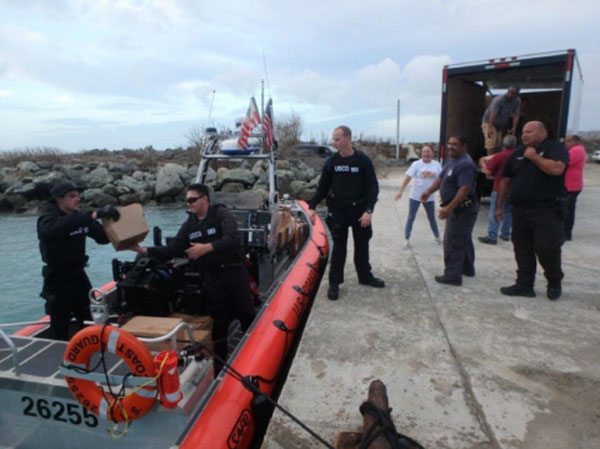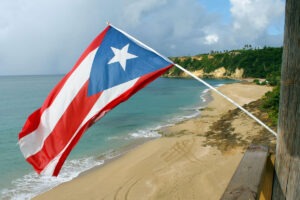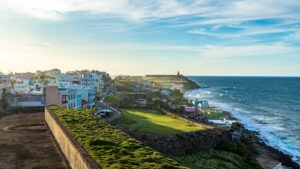
September 26, 2017; Washington Post
The New York Times reports that almost half of U.S. citizens do not know that the residents of Puerto Rico are also citizens of this country. Perhaps President Trump is in that category, and that’s why, although he insists he has plenty of time on his hands— certainly enough to continue tweeting obsessively about the NFL—the federal response to date appears slow and low on his priority list despite all protestations to the contrary.
What we do know is that Hurricane Maria destroyed ports and roads, took out the power grid, and downed almost all of the island’s 1600 cell phone towers. Only 11 of the island’s 69 hospitals are open. But relief is not yet actually deployed to those in need.
Trump’s public response to Puerto Rico has been characteristically bizarre. On Monday, he said the island “was already suffering from broken infrastructure & massive debt” and that its “old electrical grid, which was in terrible shape, was devastated. Much of the Island was destroyed, with billions of dollars…owed to Wall Street and the banks which, sadly, must be dealt with.” None of this collection of pre-exiting conditions does he take upon himself as a president. It is as if he is talking about another country.
Then, the administration said it would not waive the Jones Act in order to override the restriction on foreign cargo ships, even though he did waive the Act after Harvey and Irma struck Texas and Florida. Many Puerto Ricans have long advocated for the permanent lifting of that act to help jumpstart the economy there.
And then, on Tuesday, after acknowledging Puerto Rico “needs a lot of money,” he went on to say there’s “a very big ocean” around Puerto Rico but that “we’re doing a really good job” regardless.
“Everybody has said it’s amazing, the job that we’ve done in Puerto Rico,” Trump said, even as reports from Puerto Rico indicated that relief was not getting to those affected. “We’re very proud of it.”
He topped all that off with the kind of characteristic, wholesale assessment of people he sometimes makes when accused of some semblance of racism, saying. “Puerto Rico is very important to me. The people are fantastic people. I grew up in New York, so I know many people from Puerto Rico. I know many Puerto Ricans. And these are great people, and we have to help them.”
Sign up for our free newsletters
Subscribe to NPQ's newsletters to have our top stories delivered directly to your inbox.
By signing up, you agree to our privacy policy and terms of use, and to receive messages from NPQ and our partners.
In fact, he predicts that the U.S. will get an A grade for its response to the disaster.
Coast Guard Commandant Adm. Paul Zukunft said of the 3.4 million fellow American citizens on the island, “They feel isolated, and they’re probably getting a sense of betrayal, of, well, ‘Where is the cavalry?’”
FEMA reports that it has 10,000 responders on the ground with supplies, but they have not been able to deploy yet to get those supplies into people’s hands. Meanwhile, it is six days post-disaster.
Daniel Kaniewski, the deputy Director of FEMA, said in an interview with PBS NewsHour,
So, right now, our priorities are, one, people, making sure we’re getting emergency responders on the ground.
Again, we have 8,000 on the ground right now, closer to 10,000 now. We also need equipment. We have to have generators. We need fuel. We need commodities like food and water. All of those are there.
In fact, as far as food goes, we have over four million meals, and water, over 6,000 liters. But just because it’s there doesn’t mean it’s in people’s hands. And I think that’s an important distinction.
It is an important distinction, and one wonders how this explanation might go over on the mainland. —Ruth McCambridge













